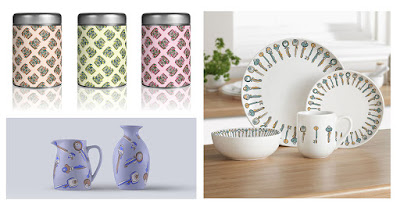The practical work for this project investigates the morality of working to a brief which commodifies a social issue. It aims to cause a conflict of priorities between professionalism and personal morals. The brief is to produce a body of imagery that raises awareness of dementia but the imagery also needs to correspond to the vintage trend to ensure the final products are commercially viable. The brief is purposefully ambiguous about which aspect is the most important and it therefore forces the practitioner to make their own decisions, conscious or unconscious, about whether to prioritise the social issue or the marketability of the outcomes.
It could be argued that the intentions behind this project are dishonest but the real intention is to demystify the dishonesty of the commodification of social issues in our everyday lives. The process of applying imagery relevant to an issue onto unrelated products that we use every day provides an insight into how simple it is to persuade consumers to buy products purely because they have a ‘socially responsible’ message. Consumers surround themselves with products they feel represent their own values and this is why the products that display these values are increasingly popular. They help people to show that they are a good person, without having to actually do anything good at all.
The message for sale here is ‘I care about people with dementia’ whereas the action of purchasing these products actually displays the message of ‘I care more about products than about people’.


